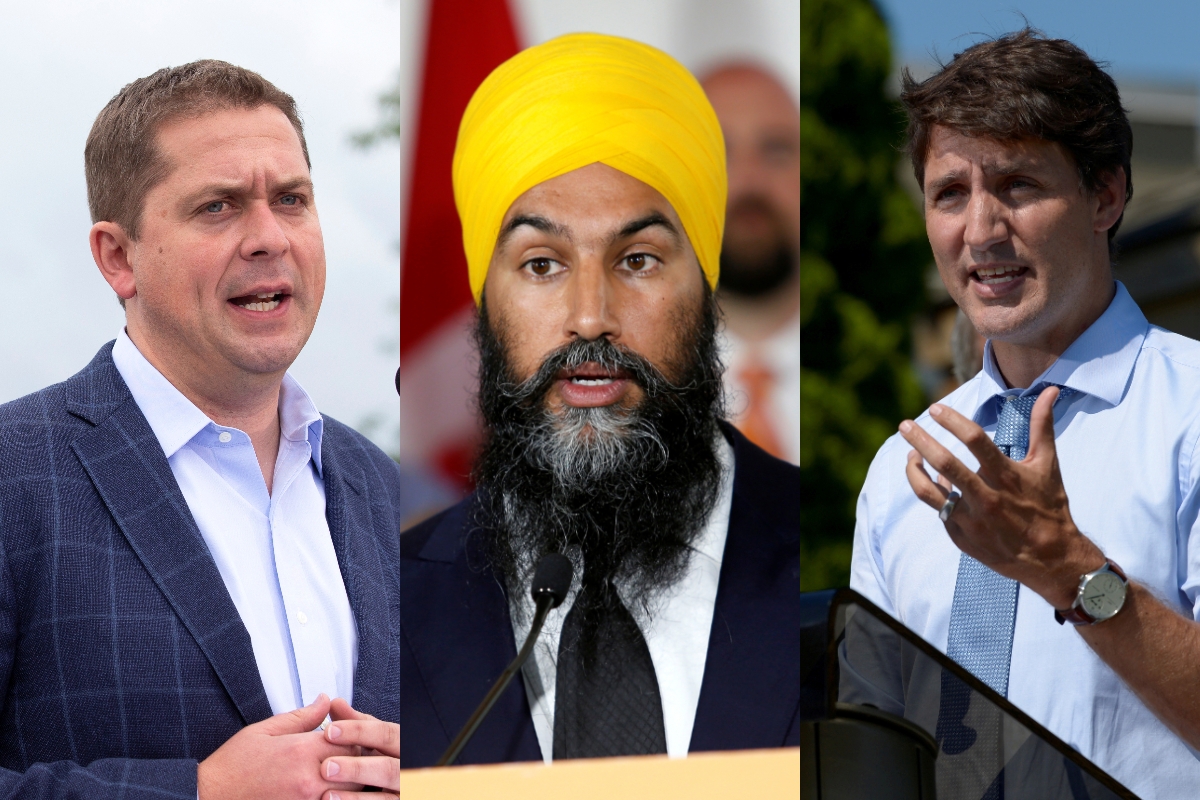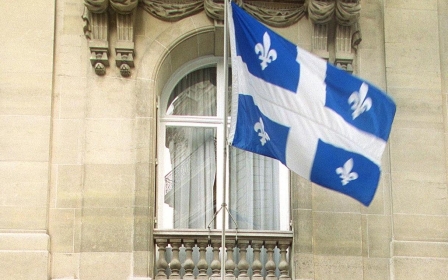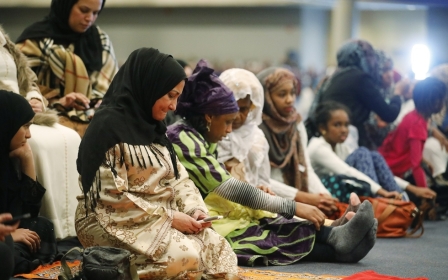Canada: As campaigns begin, leaders address Quebec religious-symbols law

As Canada's federal election campaign kicks off, the leaders of the country's three major parties were asked to weigh in on a controversial Quebec bill that bars certain public employees from wearing religious symbols in the workplace.
Prime Minister Justin Trudeau of the Liberal Party, the Conservatives' Andrew Scheer and Jagmeet Singh of the New Democratic Party (NDP) each spoke about Bill 21 on Wednesday, the first day of the election campaign.
The provincial legislation bars some public-sector workers, including teachers and lawyers, from donning religious symbols on the job in Quebec, the French-speaking province in eastern Canada.
It was passed in June, igniting a firestorm of controversy across the country and prompting a legal challenge in Quebec, where critics say the legislation discriminates against religious minorities.
On Wednesday in Ottawa, Trudeau said he was "deeply opposed" to the law, but it would be "counter-productive" for the federal government to get involved in ongoing litigation.
New MEE newsletter: Jerusalem Dispatch
Sign up to get the latest insights and analysis on Israel-Palestine, alongside Turkey Unpacked and other MEE newsletters
"As I've said many times, I am deeply opposed to Bill 21 in Quebec. I don't think that in a free society we should be legitimising or allowing discrimination against anyone," Trudeau told reporters.
"I'm very pleased that Quebecers themselves have chosen to contest this bill in court, to stand up and defend the Charter of Rights and Freedoms.
"We have been, I have been, watching very closely the process, and considering the federal potential actions, and at this time I feel it would be counterproductive for the federal government to engage in this process."
Trudeau's comments were welcomed by the National Council of Canadian Muslims (NCCM), a national Muslim advocacy group that is one of the intervenors in the legal case.
"We welcome the Prime Minister's condemnation of Bill 21, and his recognition of the importance of the current lawsuit being brought forward by our organisation, the Canadian Civil Liberties Association and Ichrak Nourel Hak," the group's executive director, Mustafa Farooq, said in a statement.
In August, the complainants were granted leave to appeal a lower court's decision upholding Bill 21, taking their legal challenge to the Quebec Court of Appeal.
"We call upon all political parties to clearly and consistently state their opposition to Bill 21 during this election campaign," Farooq said.
Trudeau, whose Liberal Party of Canada secured a parliamentary majority in the last federal election in 2015, is fighting for re-election in the upcoming vote, which is set for 21 October.
His biggest challenge comes from the right-wing Conservative Party of Canada, which was in power for almost a decade under previous leader Stephen Harper.
Vying for Quebec votes
Scheer, the current head of the party, said on Wednesday that he wouldn't interfere in the ongoing Quebec court case over Bill 21.
"We do not have the intention of intervening in this case. We have made it very clear this is not something we would do at the federal level, and that has been our position from the beginning," Scheer told reporters in Trois-Rivieres, Quebec, where he kicked off his campaign.
Scheer, who is pushing to add several seats in the province next month, did not answer directly when pressed about whether he believes the law infringes on peoples' religious freedom.
'It's a divisive law. It's state-sanctioned discrimination ... We say we shouldn't discriminate someone by the way they look; there's a law that says you're allowed to'
- Jagmeet Singh, leader of the New Democratic Party
"People who are against this bill right now are making that case directly in the courts. That is their right. They will have the ability to do so and the courts will ultimately decide on that," he said.
Singh, the head of the left-leaning NDP, said on Wednesday that Bill 21 was an example of "state-sanctioned discrimination".
"I think about a lot of the people that I meet in Montreal, a lot of young women that I've met who love science and love teaching and want to become a teacher and now because of this bill, can't," he said at his campaign launch in Ontario.
"And it upsets me, it saddens me. It's a divisive law. It's state-sanctioned discrimination... We say we shouldn't discriminate someone by the way they look; there's a law that says you're allowed to," Singh said.
Under the NDP's late former leader Jack Layton, the party secured the main opposition spot in Canada's parliament in 2011 thanks in large part to the support it garnered in Quebec.
The surprise showing at the polls was dubbed the "Orange Wave", after the colour of the NDP's logo.
Still, Singh, who is Sikh and wears a turban, is facing a tough challenge to garner support this time around in Quebec, where Bill 21 enjoys popular support.
Last week, he released a video on social media in which he addressed Quebecers in French.
"I'm not like others. Like you, my identity is my pride... I've known enough injustice to know how to fight, and now I'm ready to fight for you," he says in the clip. "It's simple: My name is Jagmeet. You know the NDP; now, you know what I'm made of."
Middle East Eye delivers independent and unrivalled coverage and analysis of the Middle East, North Africa and beyond. To learn more about republishing this content and the associated fees, please fill out this form. More about MEE can be found here.




